I never would have imagined that one day I’d find myself in Rwanda
We spent a night at an overland campground in Turbo, Kenya, outside of Eldoret. The next morning we crossed the border into Uganda (and later the Nile) as we made our way to Kampala, the capital. We spent two nights at a backpackers there, just relaxing, and then continued on to Kabale.
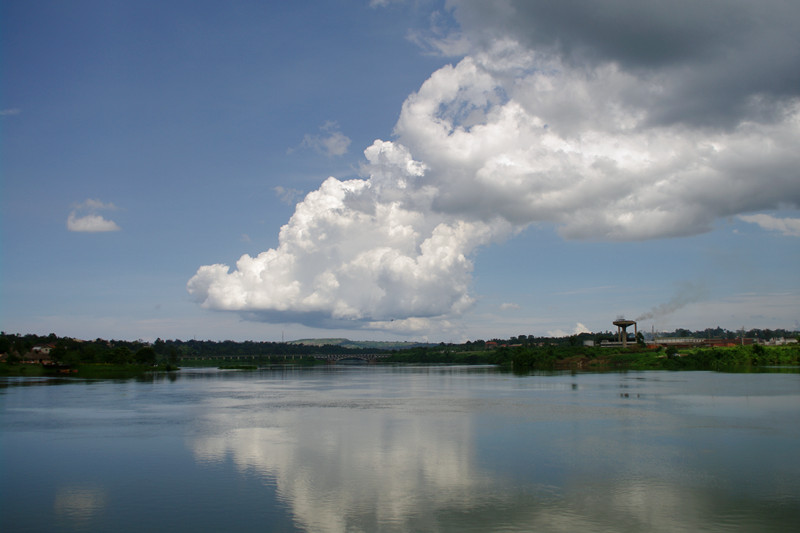
As we crossed the border into Rwanda on May 22, I found the countryside so jaw-droppingly beautiful that I couldn’t help myself from snapping a few photos of this “Land of 1000 Hills” (le Pays des mille collines) from the truck (something I’d hesitated to do until now). The hillsides weren’t exactly “terraced” but every usable surface had been cultivated with great precision, as if the land had been stitched together out of patchwork. The bottoms of the valleys were coated with row upon row of low-lying tea bushes, as far as the eye could see. The small houses and villages on the way were immaculately maintained. There was little to no trash along the road. It was a drive I didn’t want to end.
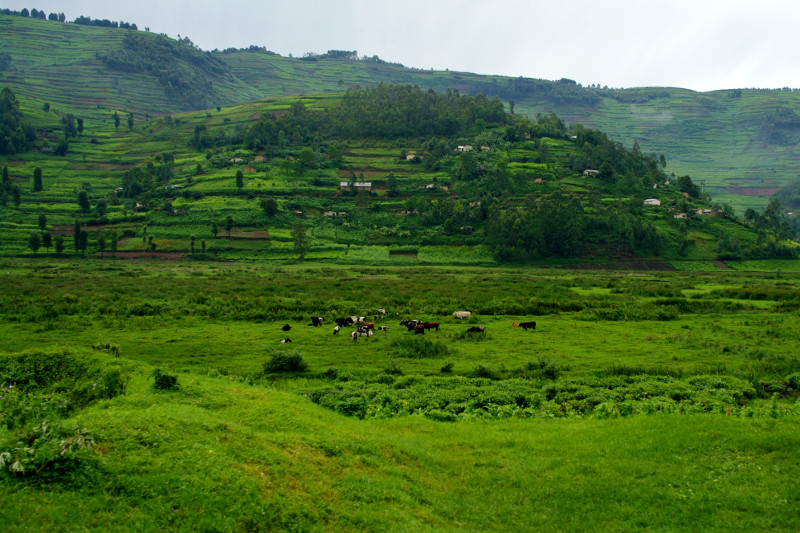
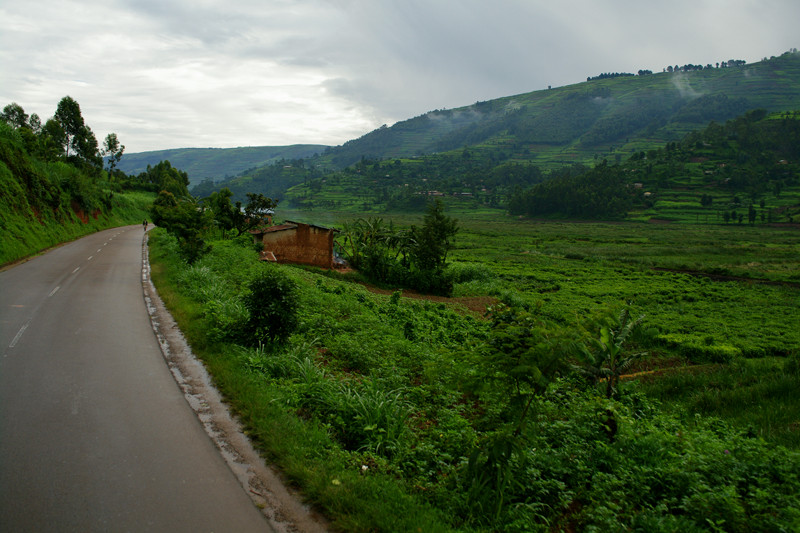
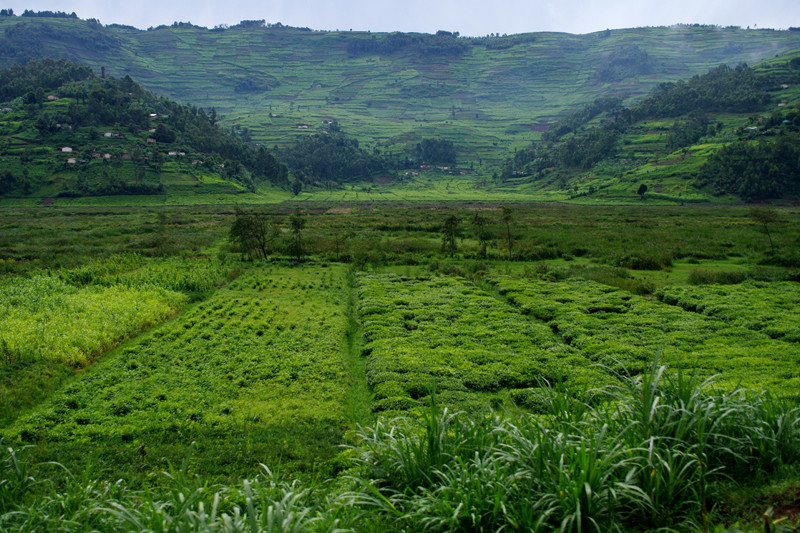
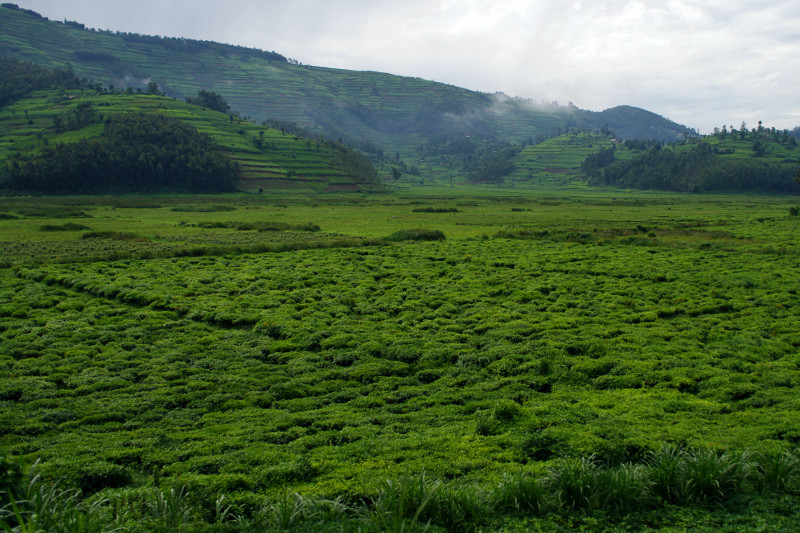
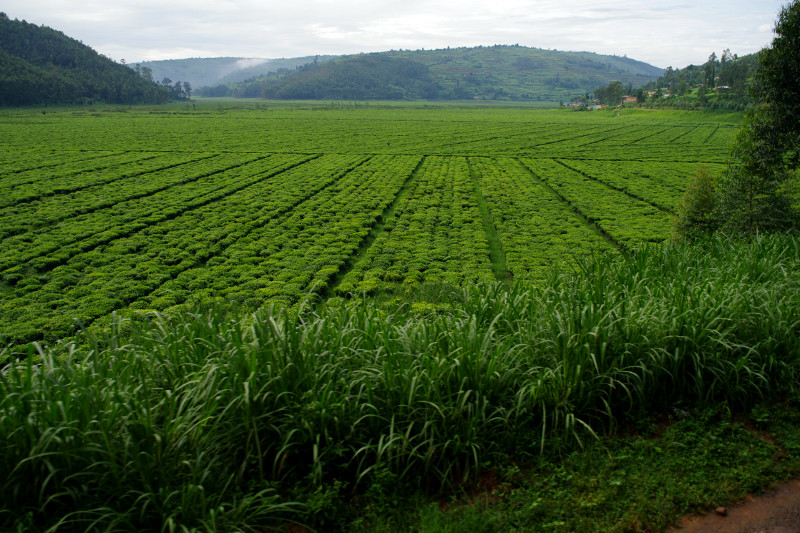
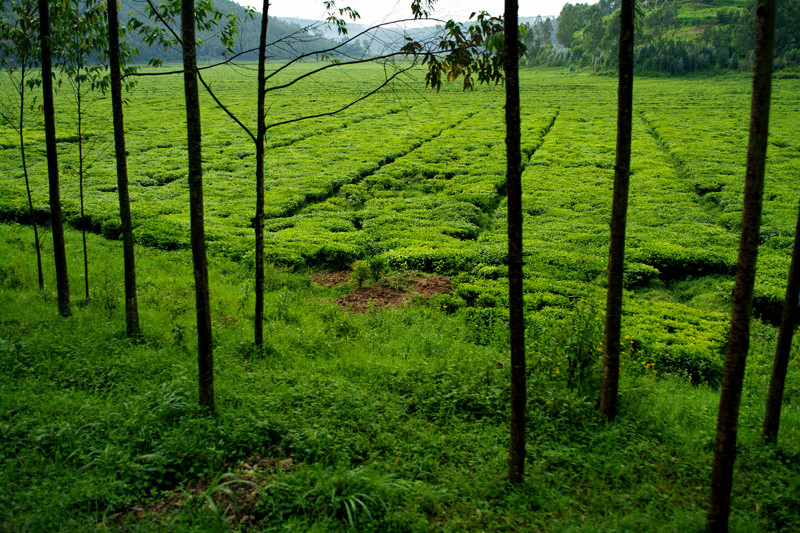
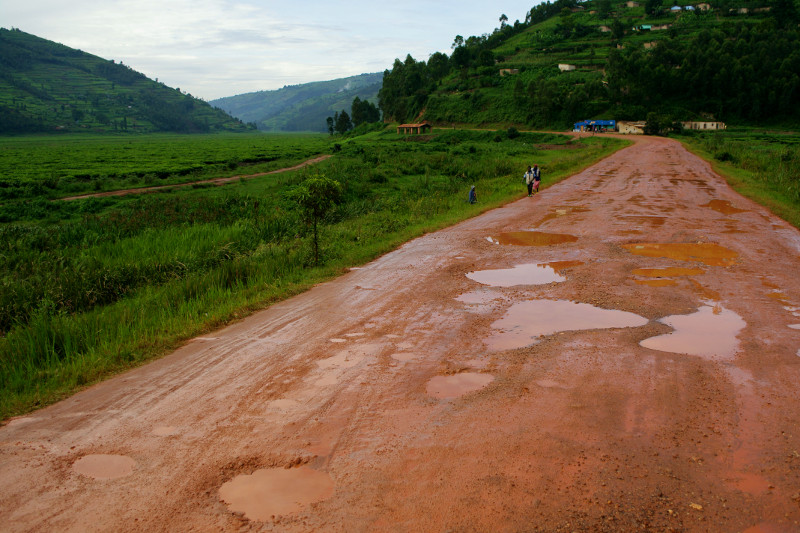
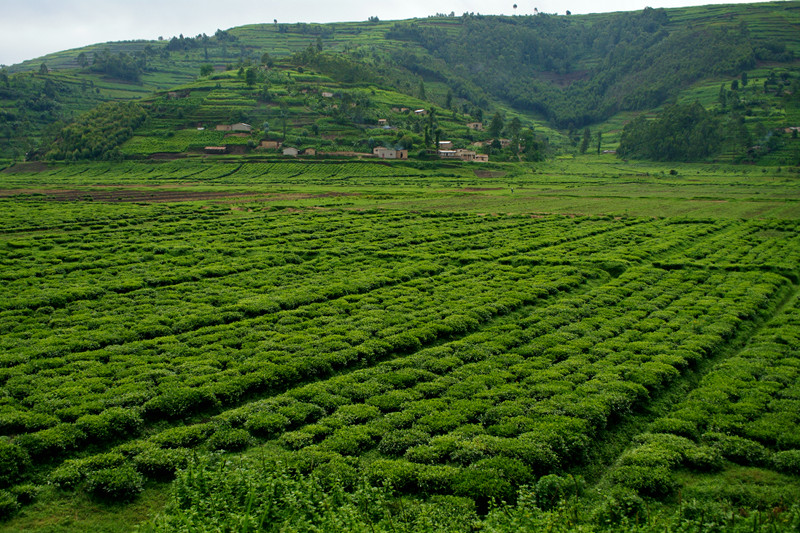
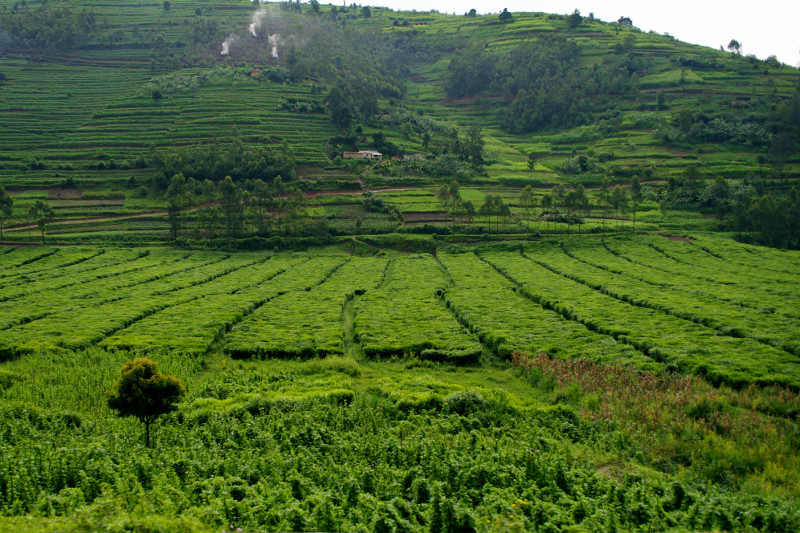
We arrived in Kigali, the capital of Rwanda, to visit the Genocide Memorial. We spent several hours walking through its informative and moving exhibits. The grounds of the memorial include 12 mass graves in which over 250,000 remains are buried. A quarter of a million people—and that’s only a quarter of the estimated 1 million people who were killed in the span of 3 months in 1994. While we were there a funeral procession arrived at the memorial (part of an ongoing process to honor the dead still being discovered 17 years later).
After lunch, we drove to Musanze (formerly Ruhengeri) which serves as the gateway to Volcanoes National Park (Parc National des Volcans) where we’d be trekking to visit the mountain gorillas. I’ll save that experience for its own post, but first I want to write about the dinner we had after we went trekking.
A local Rwandan meal had been organized for us in town. The food was superb, a home-cooked buffet of impressive variety. While we ate, a genocide survivor named Francis (who currently works as a guide at Volcanoes National Park) gave a very educated and thorough talk which I found in many ways more captivating and far more nuanced than the information presented by the Genocide Memorial.
It seemed to me that the memorial went to excessive lengths to describe how the colonizing force, in this case Belgium, created the ethnic divide in Rwanda by reinforcing divisions between the cattle-herders (the Tutsis, roughly 14% of the population), and the farmers (the Hutus, roughly 85% of the population) and then favored the Tutsis in administrative roles in the colonial government. This slight remained with the Hutus, even after the end of colonization, when they took control of the government and military. (At least that’s how it was presented.)
Furthermore the memorial emphasized the fact that the UN and the international community (particularly France, who apparently took over from Belgium in role of post-colonial partner) didn’t do anything to stop the genocide (and in several cases, provided support for the genocidaires), especially when they appeared to be in possession of unambiguous evidence that a genocide was being planned.
Neither of these two contributing factors are contested, but they were presented in such a way that I felt placed a majority of blame on actors outside the country, and very little on the architects of the genocide and the genocidaires themselves. It made me feel as though I was at fault (as a foreigner, as a westerner, as an American)—and yet I feel conflicted because I’m also at fault when we do intervene and things go awry.
At the end of the talk, someone asked Francis how he feels about organizations like the UN, given their shortcomings during the genocide, and I found his response got right to the heart of my unease with the Genocide Memorial. A paraphrase of his response:
It would have been a great thing were an organization like the UN or country like the US or the UK able to avert the genocide, but at the same time, I cannot blame the outside world for what happened. The genocide was committed inside Rwanda, by Rwandans. Only we can take responsibility for what happened. For example it might take two months to determine whether fighting is the result of tribal conflict or is a genocide. But after two months, it’s too late, the damage has already been done.
Even though his attitude suggests a sort of helplessness in the face of the worst of humanity’s excesses, I found it heartening to have heard it directly from a Rwandan, from a survivor. Here was something that by all accounts could have been prevented (one can only speculate whether it would have been diffused or just deferred) and yet the entirety of his talk suggested that the attitude in Rwanda is focused entirely on reconciliation, not retribution.
I have just read this wonderful piece of writing on travel through Rwanda and do agree with you entirely on the beauty of the land. I cannot tell you how many times I have stopped my car just to enjoy the countryside when travelling through. I hope many people will read this and want to come to see for themselves.
Please come again.
Leonia, so glad you felt this post lived up to your experiences driving through Rwanda.